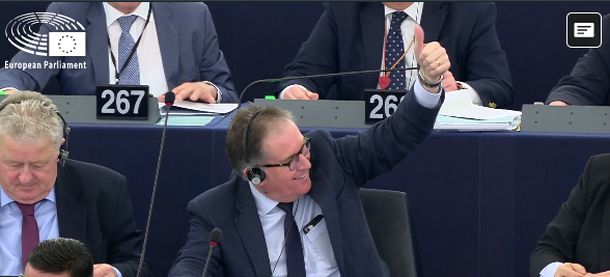European Parliament's lawyers question EU-Moroccan agri-pact

The proposed EU-Moroccan agricultural agreement lacks clarity on the issue of Western Sahara, according to a newly released legal opinion by the European Parliament’s legal services. The opinion suggests Parliament to examine this ambiguity before giving its consent.
Published 01 February 2011
The legal opinion was drafted in response to questions on the inclusion of the Western Sahara territory in the renewed agricultural agreement with Morocco, and the resulting consequences for the agreement’s legality.
The proposed agreement envisions a substantial liberalisation of agricultural produce, processed agricultural products and fisheries products on EU side, in return for liberalisation of 55% of EU imports from Morocco. The text was signed by the European Council and Morocco on 13 December 2010 in Brussels, but still needs the European Parliament’s approval.
As in the case of the debate on a possible continuation of the EU-Moroccan fisheries agreement, the question of Western Sahara proves to be a thorny issue.
The EP’s legal services state that they “lack information whether and how the proposed Agreement will be applied to the territories of Western Sahara and how it will actually benefit the local people”. Also, information is missing as to “whether the further liberalisation of those goods is in accordance with the wishes and interests of the people of Western Sahara”.
As of today, no consultation has yet been done with the people of Western Sahara, which would be necessary shall the agreement be in line with international law. See a UN opinion on the rights of the Saharawi people over their own natural resources.
Since Western Sahara is not recognised as part of Morocco, both the US and the EFTA states have specifically excluded applying Western Sahara from their free trade agreements with Morocco.
"Under these circumstances, it seems appropriate to clarify these questions with the Commission before taking a position on the consent to the conclusion of the proposed Agreement", the opinion concludes.
Download a summary of the legal opinion from the webpages of the Spanish agricultural organisation COAG here.
This is the second time that the Parliament’s legal services have issued an opinion on the impact of an EU-Moroccan bilateral agreement on Western Sahara. In 2009, the lawyers questioned the legality of the fisheries agreement for not benefitting the Saharawi people, although EU vessels are operating in Saharawi waters.
News
Here is the EU Council's legal advice on fishing in occupied waters
Before voting on the new EU-Morocco fish deal in 2018, extending into occupied Western Sahara, several EU Member States asked for legal advice that would determine their vote. WSRW today publishes that influential legal opinion, which appears to miss the ball entirely.
05 March 2020
Hans Corell criticizes EU fisheries in Western Sahara
The former Legal Counsel to the UN Security Counsel, Mr. Hans Corell, comments on the EU's fisheries activities in Western Sahara.
20 November 2019
EU Court reaffirms position on Western Sahara
Polisario has a case, but it should be pursued when the time is right, Court implies.
28 February 2019
European Parliament disregards Court and adopts Morocco fish deal
Notwithstanding four consecutive rulings of the EU's highest Court calling such a practice illegal, the European Parliament has just now voted in favour of the EU-Morocco Fisheries Agreement that will be applied to the waters of occupied Western Sahara.
12 February 2019


